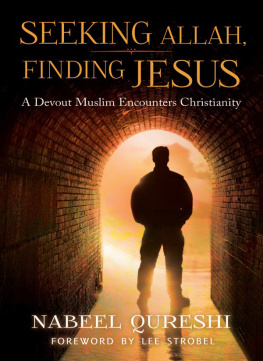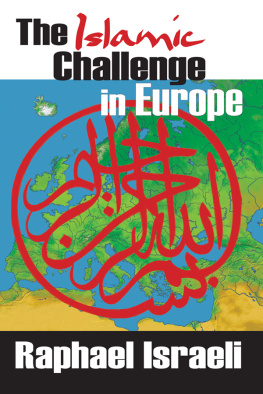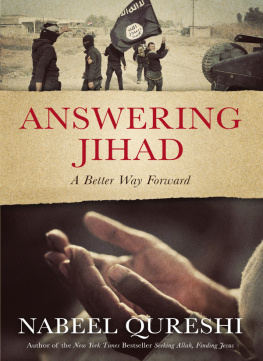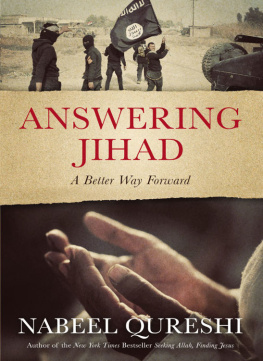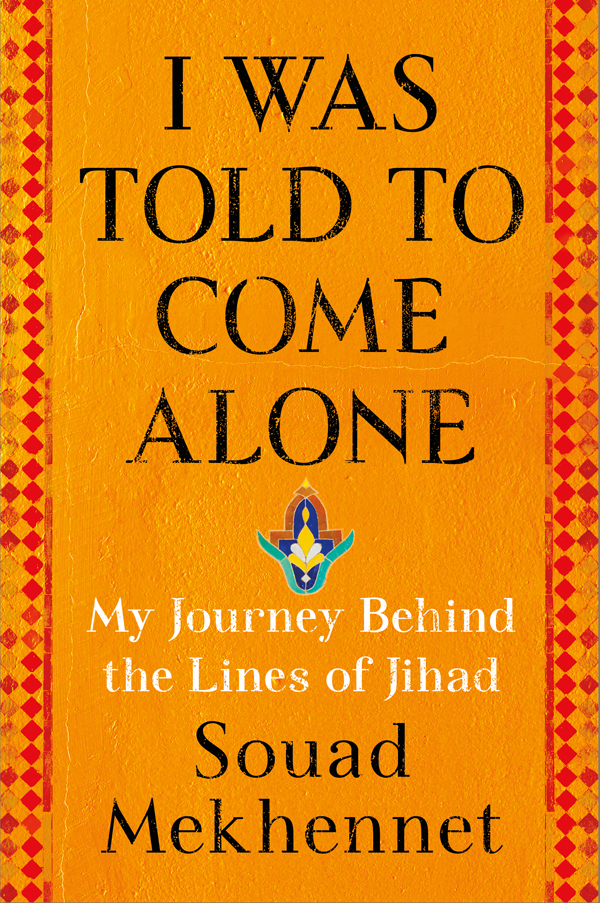Contents
Guide

The author and publisher have provided this e-book to you for your personal use only. You may not make this e-book publicly available in any way. Copyright infringement is against the law. If you believe the copy of this e-book you are reading infringes on the authors copyright, please notify the publisher at: us.macmillanusa.com/piracy.
To my grandparents, parents, and siblings
I was told to come alone . I was not to carry any identification and would have to leave my cell phone, audio recorder, watch, and purse at my hotel in Antakya, Turkey. All I could bring were a notebook and a pen.
In return, I wanted to speak to someone in authority, someone who could explain the long-term strategy of the Islamic State of Iraq and al-Sham, or ISIS. It was the summer of 2014, three weeks before the group became a household name by releasing a video of the beheading of the American journalist James Foley. Even then, I suspected that ISIS would become an important player in the world of global jihad. As a journalist covering Islamic militancy across Europe and the Middle East for the New York Times , major German news outlets, and now the Washington Post , I had watched the group take shape in the world created by the September 11 attacks, two U.S.-led wars, and the upheaval known as the Arab Spring. I had been talking to some of its future members for years.
I told my contacts with ISIS that I would ask whatever questions I wanted and that I wouldnt clear quotes or show them the article before it was published. I also needed their guarantee that I wouldnt be kidnapped. And since Id been told not to bring anyone else from the Post , I asked that the trusted contact who had helped arrange the interview be allowed to accompany me.
Im not married, I told the ISIS leaders. I cannot be alone with you.
As a Muslim woman of Moroccan-Turkish descent, born and raised in Germany, I am an outlier among the journalists covering global jihad. But in the years since I started reporting on the September 11 hijackers as a college student, my background has given me unique access to underground militant leaders such as the man I was to meet that July day in Turkey.
I knew that ISIS was holding journalists hostage. What I didnt know was that the leader I would meet oversaw the groups hostage program, supervising the British-accented killer who would appear on the videos and become known to the world as Jihadi John. I would learn later that the man I met that summer, who was known as Abu Yusaf, had taken a leading role in torturing the hostages, including waterboarding them.
I had asked to meet Abu Yusaf during the day in a public place but was told that wouldnt be possible. The meeting would be at night, and in private. A few hours beforehand, my contact moved the time back to 11:30 p.m. This was not a comforting development. A year earlier, members of the German antiterrorism police unit had knocked on my door at home to tell me they had learned of an Islamist plot to lure me to the Middle East with the promise of an exclusive interview, then kidnap me and force me to marry a militant. Those threats came back to me now, as I wondered if I was crazy to be doing this. Despite my nerves, I pressed on. If everything worked out, I would be the first Western journalist to interview a senior ISIS commander and live to tell the story.
It was a hot day toward the end of Ramadan, and I wore jeans and a T-shirt as I prepared my questions at the hotel in Antakya. Before leaving, I put on a black abaya , a traditional Middle Eastern garment that covers the whole body except for the face, hands, and feet. One of Abu Musab al-Zarqawis associates had chosen it for me years earlier, when Id visited the late Al Qaeda leaders hometown of Zarqa, Jordan. The Zarqawi associate had bragged that this abaya , which had pink embroidery, was one of the nicest styles in the shop, and the fabric was thin enough to be comfortable even in hot weather. Since then, it has become a sort of good luck charm. I always wear it on difficult assignments.
We were to meet Abu Yusaf along the Turkish-Syrian border, not far from the border crossing at Reyhanli. I knew the area well: my mother had grown up nearby, and I had visited often as a child.
I said good-bye to my Post colleague Anthony Faiola, who would stay behind at the hotel, leaving phone numbers he could use to reach my family in case anything went wrong. At about 10:15 p.m., the man who had helped arrange this interview, whom Ill call Akram, picked me up at the hotel. After a forty-minute drive, we pulled into the parking lot of a hotel restaurant near the border and waited. Two cars soon appeared out of the darkness. The driver of the lead car, a white Honda, got out; Akram and I got in. Akram sat behind the wheel and I climbed into the passenger seat.
I twisted around to look at the man I had come to interview, who sat in the back. Abu Yusaf looked to be twenty-seven or twenty-eight and wore a white baseball cap and tinted glasses that masked his eyes. He was tall and well built, with a short beard and curly, shoulder-length hair. Dressed in a polo shirt and khaki cargo pants, he would have blended in seamlessly on any European street.
Three older Nokia or Samsung cell phones lay on the seat beside him. For security reasons, he explained, no one in his position would use an iPhone, which could make him especially vulnerable to surveillance. He wore a digital watch similar to those Id seen on American soldiers in Iraq and Afghanistan. His right pocket bulged; I assumed he was carrying a gun. I wondered what would happen if the Turkish police stopped us.
Akram turned the key in the ignition, and the car began to move in darkness along the Turkish side of the border, sometimes passing through small villages. I could hear the wind against the car windows. I tried to keep track of where we were, but my conversation with Abu Yusaf drew me in.
He spoke softly and calmly. He tried to hide that he was of Moroccan descent and where exactly in Europe he came from, but I noticed his North African features, and when I switched from classical Arabic to Moroccan Arabic he understood and answered in kind. It turned out he had been born in Morocco but had lived in the Netherlands since his teens. If you want to check my French as well, just tell me, he said, smiling. He also spoke Dutch. I would learn later that he had been trained as an engineer.
As we drove, he explained his vision: ISIS would free Muslims from Palestine to Morocco and Spain and then go farther, spreading Islam all over the world. Anyone who resisted would be treated as an enemy. If the U.S. hits us with flowers, we will hit them back with flowers, Abu Yusaf said. But if they hit us with fire, we will hit them back with fire, also inside their homeland. This will be the same with any other Western country.
ISIS had plenty of resources and expertise, he told me. In fact, the group had begun quietly establishing itself long before it appeared on the world stage. Its members included educated people from Western countries, highly trained security officers from Saddam Husseins presidential guard, and former Al Qaeda acolytes. You just think we have nutcases coming to join us? he asked. No. We have people from all over the world. We have brothers from Britain with university degrees and of various descents: Pakistani, Somali, Yemeni, and even Kuwaiti. Later, I would realize that he was also talking about the guards that several ISIS hostages would dub the Beatles: Jihadi John and three others with English accents.



